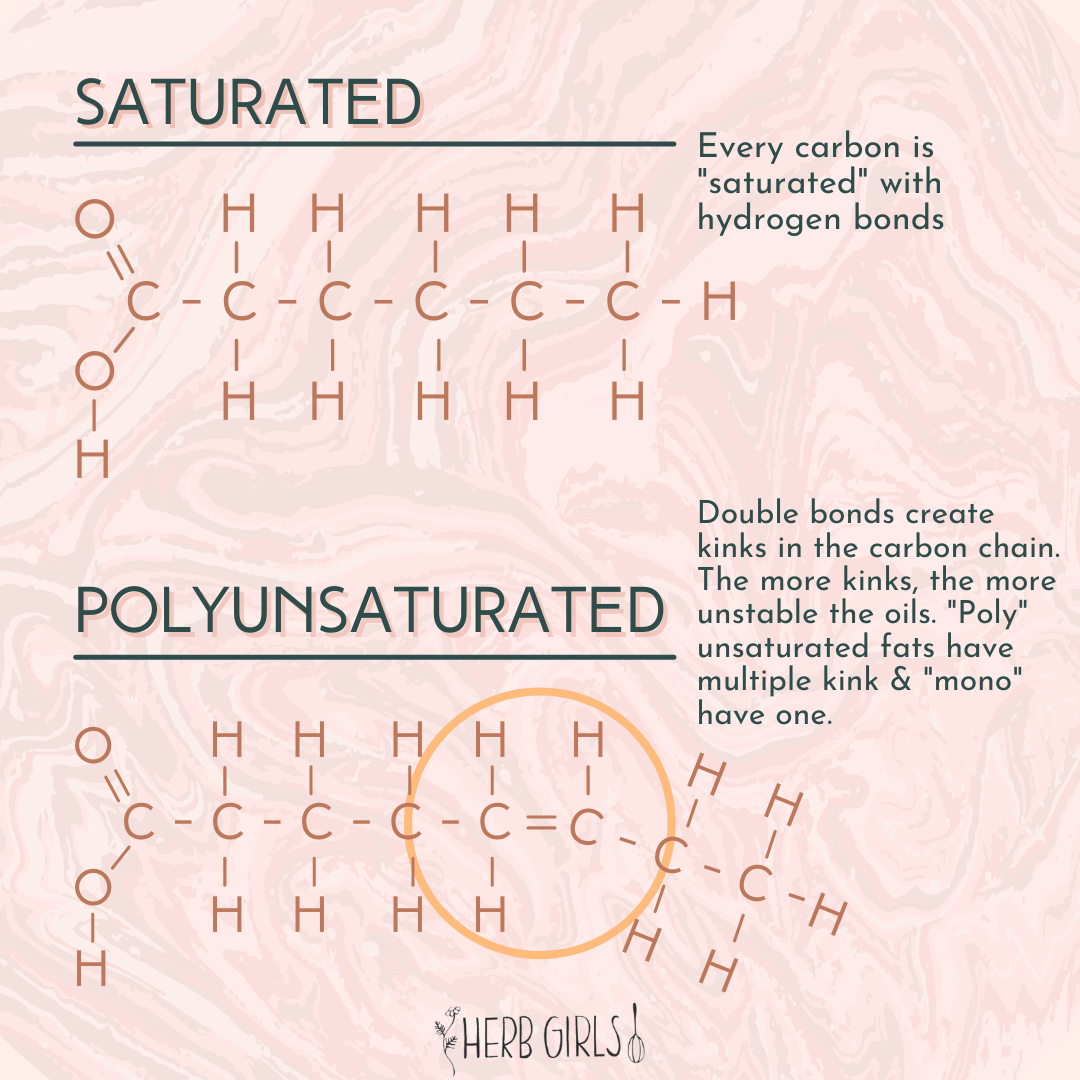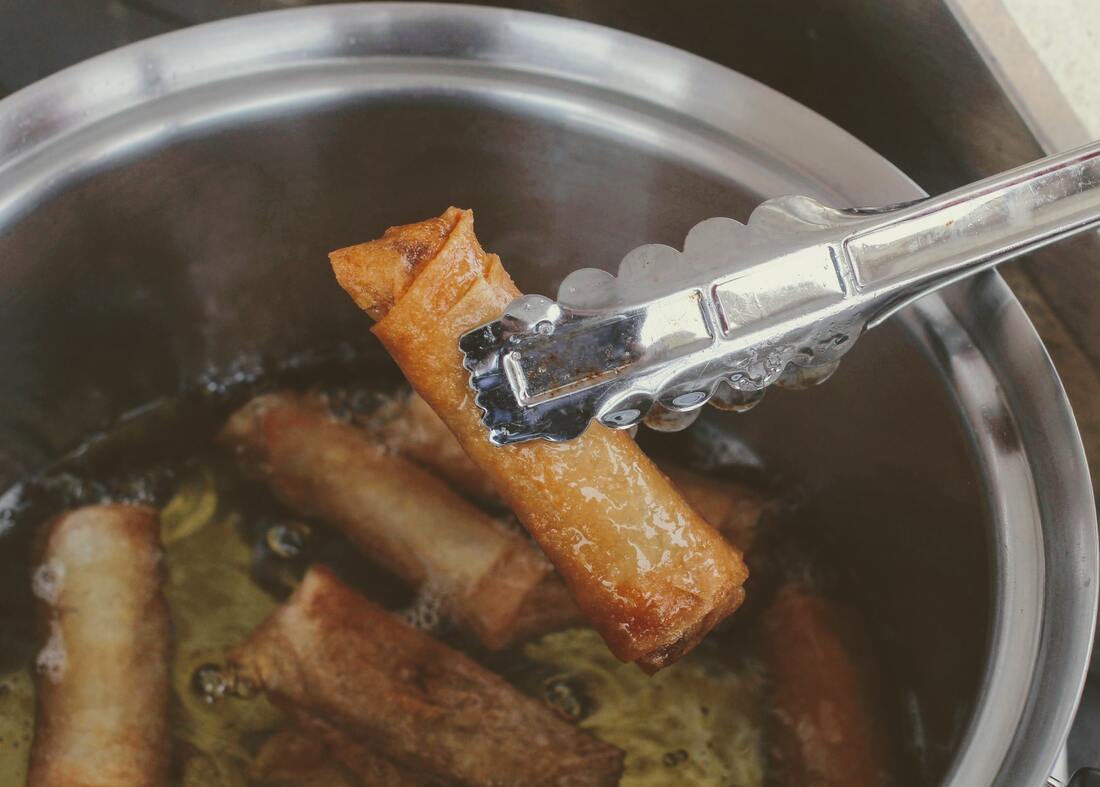(aka PUFAs!)Saturated fats are fatty acids with carbon chains that are fully loaded (or saturated) with hydrogen bonds. These chains stack perfectly on top of one another, making them solid at room temperature. Think butter, lard, and coconut oil. Unsaturated fats have unfilled hydrogen bonds, creating kinks in their carbon chains which keeps them from stacking on top of one another uniformly. These kinks make them liquid at room temperature. Poly-unsaturated (poly- means many) fats have multiple kinks in their fatty acid chains and mono-unsaturated fats (mono- means one) have one kink. Sesame and avocado oil are naturally produced unsaturated fats; olive oil is a naturally occurring mono-unsaturated fat. While humans love categories, all naturally occurring fats are actually a combination of poly-, un-, and mono-unsaturated fats. Butter, for example, is 25% mono-unsaturated. Why Clear Veggie Oils Are Problematic
"These now rancid fats trigger a cascade of inflammatory processes in the body. This is an issue because clear veggie oils are everywhere from healthy snack foods to fried food at both fancy and fast-food restaurants. We can get all the polyunsaturated fats we need by consuming Whole Food sources of nuts, seeds, & cold water fish. The abundance of clear veggie oils, however, has tipped our fat ratios out of balance. The primary PUFAs to look out for are*: canola oil, soybean oil, cottonseed oil, safflower oil, grapeseed oil, & sunflower oil Get this: the ideal ratio of polyunsaturated Omega 6 (Linoleic Acid, LA) to Omega 3 (Alpha-linolenic Acid, ALA) is 1:1... But the average America has a ratio of ~20:1! This stark imbalance means major inflammation in the body (It’s also the underlying reason why so many health professionals recommend fish oils, or Omega 3s). It makes sense that most people - even health-conscious ones - have an overabundance of rancid PUFAs in their life. Of course anything fried is going to present your body with inflammatory omegas, but ready-made snacks like cookies, chips, crackers, dressings, and sauces are some of the biggest offenders. Since clear veggie oils are often subsidized and very cheap, they are used for baking, frying, and sautéeing at even the fanciest restaurants. It's impossible to avoid every single PUFA as a modern human, but bringing awareness and avoiding them as much as you can will work wonders! Fatty Takeaways
*You CAN find good quality veggie oils that are cold-pressed such as walnut, flax, and sunflower even; however, these are very few and far between, quite expensive, and must be stored in dark bottles away from light and heat.
Comments are closed.
|
Eileen Brantley & Amy WrightWe are Herb Girls Athens, LLC. Read our blog! Archives
November 2022
Categories
All
|





 RSS Feed
RSS Feed
